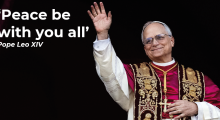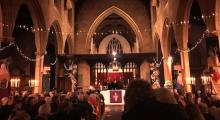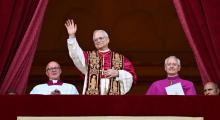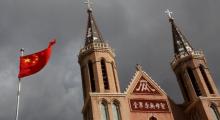Issued by the Catholic Center for Studies and Media - Jordan. Editor-in-chief Fr. Rif'at Bader - موقع أبونا abouna.org
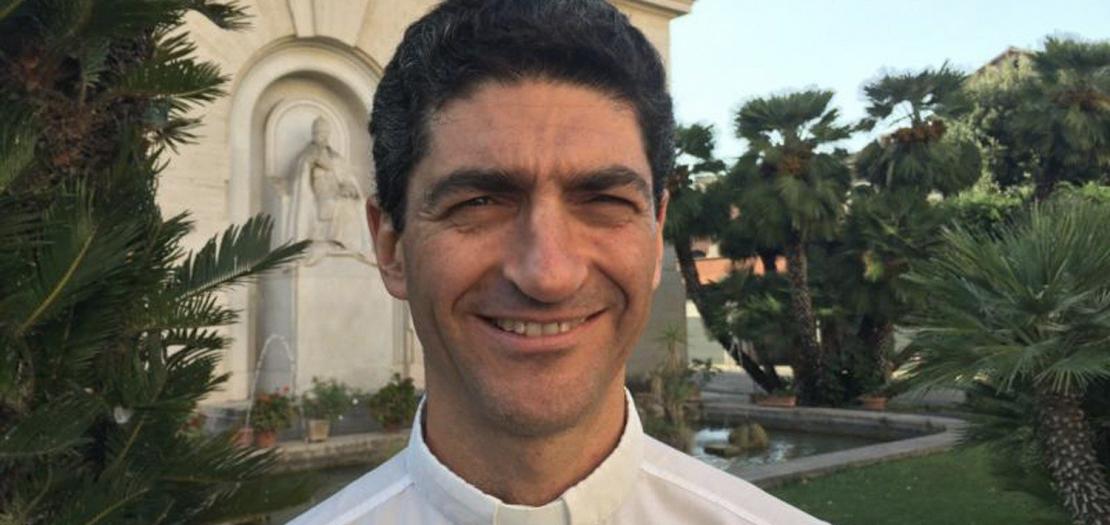
Father Augusto Zampini is adjunct secretary of the Dicastery for Promoting Integral Human Development.
And he is also coordinator of the Vatican's COVID-19 task force.
In this interview with La Croix's Nicolas Senèze, the Argentine priest says Pope Francis' 2015 encyclical Laudato si' is a key instrument for shaping the future and bringing about concrete changes.
La Croix: Is this COVID-19 crisis characteristic of what Pope Francis described in Laudato si' five years ago?
Father Augusto Zampini: Certainly. Pope Francis stressed in Laudato si' that the social is ecological, and vice versa.
COVID-19 proves it: our health depends on the health of our ecosystems, on the solidarity with which we take care of each other and of our planet.
Laudato si' emphasizes the profoundly ecological nature of the current crisis, in that it is a crisis of relationships. To counter it, we need to radically re-imagine the relationships between ourselves and with Creation, overcoming the dichotomies between environment and prosperity, politics and economics, health of people and health of systems. The encyclical is a solid foundation for building inclusive, caring and healing responses to the pandemic. It reminds us that in this time of social change, we can regenerate relationships with our neighbors and our environment. The response to the crisis is an act of ecological imagination.
Has the world finally heard the "cry of the earth" and the "cry of the poor"?
This crisis disproportionately affects the most vulnerable. If policy-makers continue to pursue the rhetoric of "recovery", by "resuming" what was unequal, unjust and unsustainable, the poor will continue to suffer the consequences.
I prefer aiming for regeneration, that is, to generate something new that brings life and well-being for all. To do this, we must create spaces for discussion and listen to the most neglected voices in our societies.
Our hope is that the cry of the earth and the cry of the poor will be the basis for a regeneration that takes into account today's wounds and creates people, institutions and a planet that are healthy. If we do not bring their voices to the forefront, there will be no way out of these interconnected crises: health, social and ecological.
With the rise of nationalism, the triumph of the virtual world promoted by Big Tech, and efforts to restart the economy at all costs, isn't the "next world" likely to be even worse?
The risk exists, and we must take it seriously. However, there is hope. And it is the role of the Church to work for this.Rather than an urgent economic recovery that benefits only some and is disadvantageous to many, not to mention the resumption of harmful exploitation of the planet's resources, we should focus on healing.
The healing of societies and policies creates universal solidarity that can overcome national egoism, corporate egoism and even religious egoism. In this way, we can in turn heal the economy. The role of the Church is to help heal what is sick rather than to recover what was before.
How can the Church weigh-in in favor of a more sustainable world?
The Vatican's COVID-19 Commission is working against the clock to study and prepare proposals for politicians, entrepreneurs, social leaders, scientists, leaders of international organizations, activists, spiritual leaders and local communities. The Pope has asked us to work alongside all these actors, and of course with local Churches and episcopal conferences, to actively and creatively prepare for a future that must be inclusive and sustainable. For this, it is essential to promote dialogue and partnerships that help people find integral solutions to these multidimensional crises, despite (or thanks to) our differences.
We're looking for solutions for the post-COVID world, focusing on the areas of ecology, economy, safety and health and using Laudato si' as a guiding framework.
We do this in collaboration with other groups and institutions, addressing issues ranging from disarmament to finance, from women to technology.


